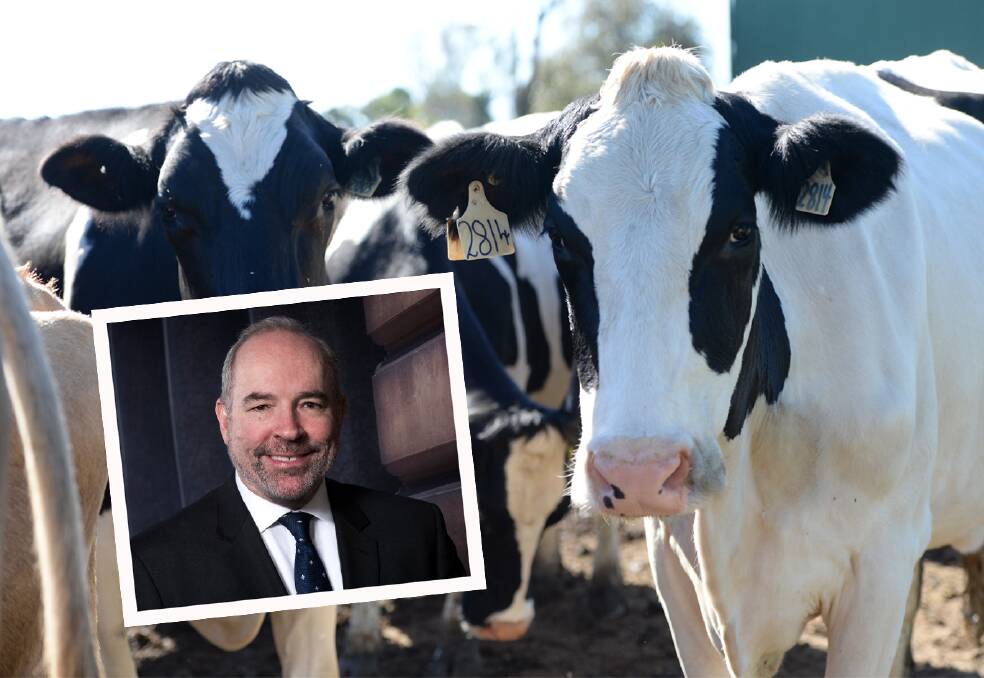
MICRO-PROCESSING facilities may be the way of the future for dairy producers and regions seeking a more sustainable industry.
Subscribe now for unlimited access to all our agricultural news
across the nation
or signup to continue reading
Not only is the dairy industry faced with the continual challenge of drought, price, large companies and competition in the marketplace, it has a complex supply chain.
Several parties are involved between the cow and the milk being poured into a consumer's cup of tea.
But this problem could be solved if the dairy supply chain starts thinking differently, according to Dr Ross McKenzie, founder and CEO of The Startup Business, who will present at the CEBIT Expo in Sydney from October 29 to 31.
"We have got to think differently, but not just in pocket," he said.
"As a competitive strategy, price is the only lever played in the dairy industry - it is a race to the bottom as we know.
"But we need to look at the whole supply chain.
"How can we collectively look at technology across the whole supply chain and by doing so improve welfare of producers, so we don't lose an industry?
"I don't believe it is about building bigger farms. The problem isn't with the dairy farmer; they are doing what they can but they can't control the climate."
Dairy farmers are involved in the use of both artificial insemination and artificial intelligence technologies, which has allowed them to reduce cows, build better genetics, boost production and improve efficiencies, but they are only the beginning of the supply chain.
In 10 years time, Dr McKenzie believes Australia will see some very specific dairy industries, whether it is in a particular region or individual dairy farmers.
He said producers would look to change the rules, and use smart technology to deliver their own direct product.
"In 10 years time you will potentially start to see specific brands of milk products in mainstream supermarkets which will have a premium price," he said.
"We have that to a degree now, such as Farmhouse Gold. But the crazy thing about the idea of a premium milk product is - isn't that what milk used to be anyway?"
The current supply chain is broken, it is not giving value to all members, and there is potential for people to take a different approach and bypass the traditional supply chain, Dr McKenzie said.
"How can we collectively look at technology across the whole dairy supply chain and by doing so improve welfare of producers, so we don't lose an industry," he said.
"The challenge is it is a complex ecosystem or supply chain with multiple parties. However, if we look at other food products or industries such as microbreweries - they are changing rules of the games.
"It is almost like going back to the old ways, but you can still distribute globally through technology.
"By creating cooperatives and setting up micro-production facilities, they can do their own direct marketing using technology and trade directly to a specific market place."
Dr McKenzie said disruptive technologies such as the Internet of Things, Blockchain, and artificial intelligence are all part of Industry 4.0 that are transforming all facets of everyday life.
"In the past, when we traded, we used to have a verified, trusted independent third party," he said.
"Disruptive technologies are saying no we don't need that anymore, it removes the middle man.
"When you start to think about that impact, there are a lot of people with skin in the game that won't want this to happen. It will be difficult to implement but it is moving very fast."
Blockchain, the platform the at the cryptocurrency Bitcoin runs on, could allow for traceability of products and give negotiation power back to more individuals.
"Whenever a product is passed from one supplier to the next in the supply chain Blockchain records it, and allows for transparency that the product is from the original person," Dr McKenzie said.
"If I am an organic dairy farmer, producing a premium product and charging a higher price, I can use this ... and retailers know they are buying it from me.
"It is now being used in logistics ... and traceability of milk from the farm gate is without a doubt possible."
This story first appeared on The Land
Read more stories like this on Australian Dairyfarmer

